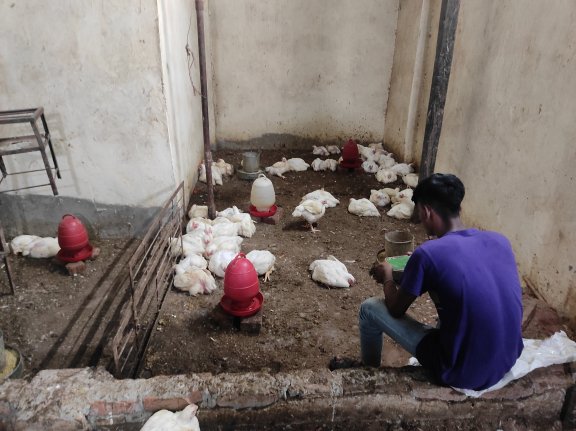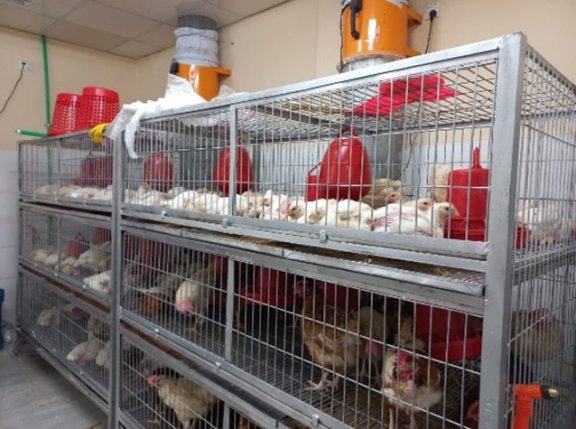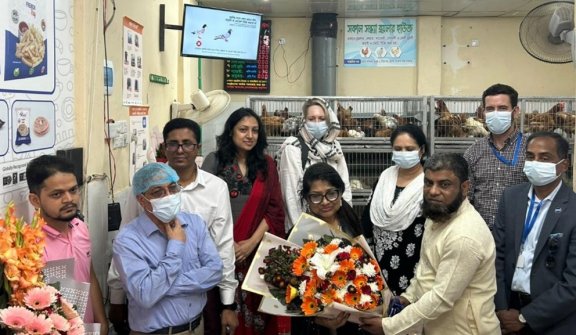Customers who wander into this recently renovated Dhaka poultry shop know at a glance that this is not a typical live bird market in the country’s capital. There’s no offal or blood on the floor, no unpleasant odor assaulting the senses. Shop workers wearing masks and head coverings can be found cleaning and disinfecting, with customers confined to specific zones, minimizing contact with live poultry. According to the shop owner, not only is his shop now cleaner and safer, but his customer base is also increasing.
Drs. Jonathon Gass and Bernard Arulanandam of Tufts University recently visited this renovated poultry shop to observe and assess the work done by the STOP Spillover Bangladesh team. The team, led by Ms. Nadia Rimi, has worked for several years to engage multiple stakeholders and develop public-private partnerships to increase biosafety in live bird markets in Bangladesh.
Previously, STOP Spillover documented unsafe husbandry, hygiene, and butchering practices that put both animals and humans at risk for exposure to highly pathogenic avian influenza (HPAI) viruses. The Bangladesh Country Team has conducted consumer surveys, sample collection, and lab testing to document consumer and vendor knowledge, attitudes, and practices (KAPs), the prevalence of HPAI in market environments, and pre-post intervention differences in pathogen presence.


Using funds from industry partners, safer poultry housing and slaughtering equipment were provided to butcherers, including poultry-keeping cages, slaughtering and processing equipment, and a ventilation system with filtration. The infrastructural work was supported and monitored by consulting engineers and biosecurity experts.
Workshops, which were developed by national and local stakeholders, educated poultry vendors on a holistic bio-secure live bird market (LBM) design, which includes principles for infrastructural improvements, biosafety guidelines, a compliance monitoring plan, a sustainable funding mechanism, and an advocacy strategy. These components were implemented into training workshops using feedback from poultry workers through group discussion on design, biosecurity, and biosafety guidelines—all of which were modified accordingly for the single-shop LBM intervention. Learning from this single shop intervention will inform a multiple shop live bird market intervention in the future.
